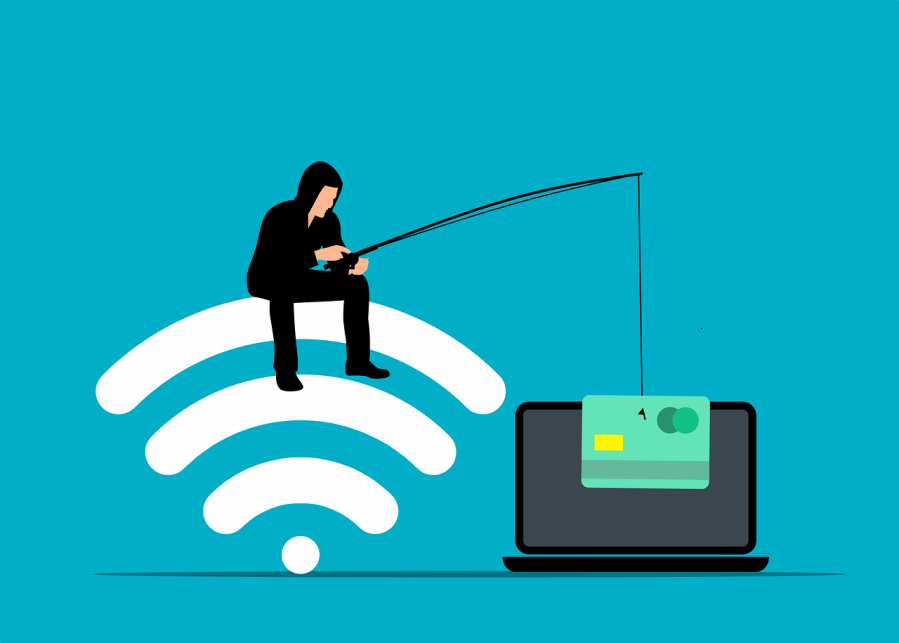Black Friday is a great time to buy car products, but equally, it’s prime time for scams. Here’s our guide on how to protect yourself from fraud, scams and cybercrime.
While Black Friday presents a good opportunity for shoppers to pick up deals on products, it also presents a good opportunity for scammers looking to take advantage of those on the hunt for deals.
It’s as important as ever for shoppers to be diligent online and understand how scammers target victims during the biggest shopping event of the year, Black Friday. Potential scams can be difficult to spot, however, there are signs that you can look out for. If something looks fishy, you have no obligation to buy anything.
Below, we have compiled a list of the most common Black Friday shopping scams, what to look out for and how to avoid becoming a victim.
Common Black Friday scams to look out for scams
No matter what you’re shopping for, don’t think you’re ever immune to the threat of scammers. These threats exist all-year round, but are particularly prevalent during annual sale events like Black Friday. With so many looking for great deals, and the cost of living rising so sharply in 2023, it can be easy to click on something that looks to be genuine, but isn’t.
Here are the most common types of Black Friday scams that you should be aware of.
Phishing emails
You will have no doubt heard about these, but if you haven’t, they are simply emails that look genuine, and promote a product you may have heard of, but link to a website that aims to steal your information and/or coerce you into a sale.
These emails can look genuine, scammers will often use email addresses that initially look legit, but once you read the full email address, you’ll often see it’s domain (the bit after the @ in the address) will be a random mix of characters, or will have the company it’s trying to copy spelled slightly incorrectly.
The emails will almost certainly include deals that are “exclusive” to you, or promise higher discount. Be vigilant, and ensure that the website links that are shown are https:// (and show a locked icon), this means they’re secure.

Fake websites and apps
Fake websites very much exist. They will often sell products you know and love from reputable brands, but the seller is not. If you’ve not heard of the retailer before, quickly use your preferred search engine to look up the company. If it’s a scam, it’s likely been reported in the past and you’ll see in the results reviews from those that have fallen short of the scam.
Where no information comes up at all, again, it’s likely a fake website. Our advice here would be to stick to websites from retailers that you know.
As with anything, if it’s too good to be true, it almost always is.
Similar to a website, scammers have set up malicious apps too, both on the Google Play Store and Apple App Store. Read reviews of the app, check how many times it’s been downloaded. If you’re in any doubt, refer to search engines or simply visit the retailers website.
Smishing
We’re confident you’ll have received one of these “smishing” texts before, but if you haven’t, we’ll explain. Have you ever bought a product and received updates on your order via SMS text? UPS, Fedex, DHL, they all do it. On the day of delivery you’re sat patiently waiting by the window for your car parts to arrive! It’s useful information when you’ve genuinely bought the product, and can be a way of scheduling an appropriate delivery slot or rescheduling for another day. However, scammers know that this is a useful tool, and like phishing emails, pose as couriers updating you on orders.
The issue arises when you have bought a product and are expecting delivery. It’s not that the scammers know you’ve ordered something (unless the whole sale is a scam), it can be just coincidence. Be vigilant. Look at who the sender is, any URLs included, and don’t give our personal information if it doesn’t feel right. I had one recently where I’d purchased some car detailing products only for a text from a courier service pop through the next day suggesting my delivery address was incorrect. This, of course, was a scam.
You can report fraud on the Department of Justice website or via the Internet Crime Complaints Centre. In the UK, the Government recommends forwarding suspicious texts to 7726, this is free of charge.

Customer support impersonation
Other forms of Black Friday scams also include customer support impersonation. This is when a scammer pretends to be customer support from either a retailer or even your bank. It’s not uncommon for people to spend a great deal of money during Black Friday whether that’s for personal shopping or for others for Christmas. Scammers know this and pose as your bank suggesting that you’ve made a number of large payments that need verification. The verification process for any purchase is usually during the transaction, not afterwards via email or text.
The idea behind this is that you will be coerced into responding to the message (it’s your money at the end of the day, you don’t want it going missing…). Then, scammers will try and get you to reset passwords for your banking and then steal personal information.
Tips for avoiding Black Friday scams
Now you’re aware of the common tactics scammers use to try and con you into taking your money, here are some of the best ways to be more vigilant when shopping online.
Read the small print: Always read the fine print, especially on websites you don’t trust. Some terms and conditions can sign you up to multiple memberships or include hidden fees. I once saw an item that was listed at a certain price, but once going through to checkout, the delivery costs and a random administration fee all but eradicated the original saving.
Read the fine print, and be wary once again of providing your personal details.
Avoid using public Wi-Fi: Public Wi-Fi isn’t safe for purchasing items with your personal details. It doesn’t have the same security parameters as your home Wi-Fi. And as you’re out and about, you have no idea who else is connected to the Wi-Fi and what information they’re taking from it. Wait until you’re home, or use mobile data to ensure you aren’t sharing your data connection with anyone else. Don’t worry about missing a Black Friday deal, there will be alternatives.
Unsecured websites: We mentioned this one before, always look out for website URLs that do not include https:// at the started. The S at the end of http stands for secure, and this will be highlight by a lock icon.
Don’t give in to pressure and be skeptical: Deals that look too good to be true almost always are. This is particularly prevalent with car parts, with many knock-off replica parts making there way into the marketplace. Those imitating others tend to be made cheaply, and will often brake. Don’t put your safety in jeopardy with some replica BBS wheels because they were $/£ a wheel!




